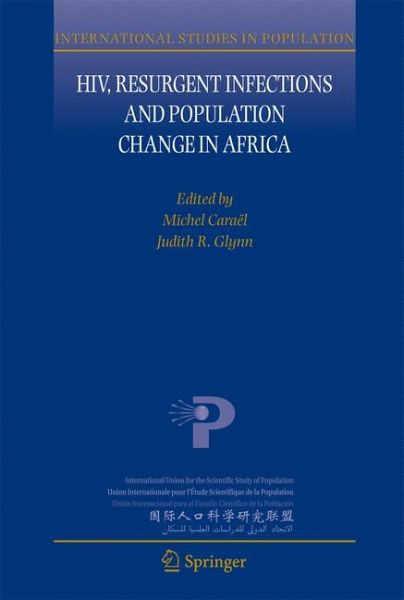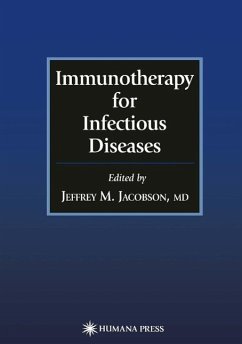
HIV, Resurgent Infections and Population Change in Africa (eBook, PDF)
Versandkostenfrei!
Sofort per Download lieferbar
72,95 €
inkl. MwSt.
Weitere Ausgaben:

PAYBACK Punkte
36 °P sammeln!
Forty years ago, the age-old battle against infectious diseases as a major threat to human health was believed close to being won. However, by the late twentieth century, the increase of emerging and reemerging infectious diseases was evident in both low and high income countries. About 30 new infectious diseases have been identified in the last 20 years. Among the "new" diseases, and most importantly, the Human Immunodeficiency Virus (HIV) epidemic, with 40 million persons infected and 25 million deaths since its first description, presents one of the most significant health, societal and sec...
Forty years ago, the age-old battle against infectious diseases as a major threat to human health was believed close to being won. However, by the late twentieth century, the increase of emerging and reemerging infectious diseases was evident in both low and high income countries. About 30 new infectious diseases have been identified in the last 20 years. Among the "new" diseases, and most importantly, the Human Immunodeficiency Virus (HIV) epidemic, with 40 million persons infected and 25 million deaths since its first description, presents one of the most significant health, societal and security challenges facing the global community. The interaction of HIV/AIDS with tuberculosis, malaria and bacterial infections have increased HIV-related morbidity and mortality, and in turn, the HIV pandemic has brought about devastating increases in tuberculosis.
Understanding the population impact and the dynamics of infection diseases in the most affected region is critical to efforts to reduce the morbidity and mortality of such infections, and for decisions on where to use limited resources in the fight against infections.
This book aims to contribute to these efforts by offering a demographic and epidemiological perspective on emerging and reemerging infections in sub-Saharan Africa.
Understanding the population impact and the dynamics of infection diseases in the most affected region is critical to efforts to reduce the morbidity and mortality of such infections, and for decisions on where to use limited resources in the fight against infections.
This book aims to contribute to these efforts by offering a demographic and epidemiological perspective on emerging and reemerging infections in sub-Saharan Africa.
Dieser Download kann aus rechtlichen Gründen nur mit Rechnungsadresse in A, B, BG, CY, CZ, D, DK, EW, E, FIN, F, GR, HR, H, IRL, I, LT, L, LR, M, NL, PL, P, R, S, SLO, SK ausgeliefert werden.












